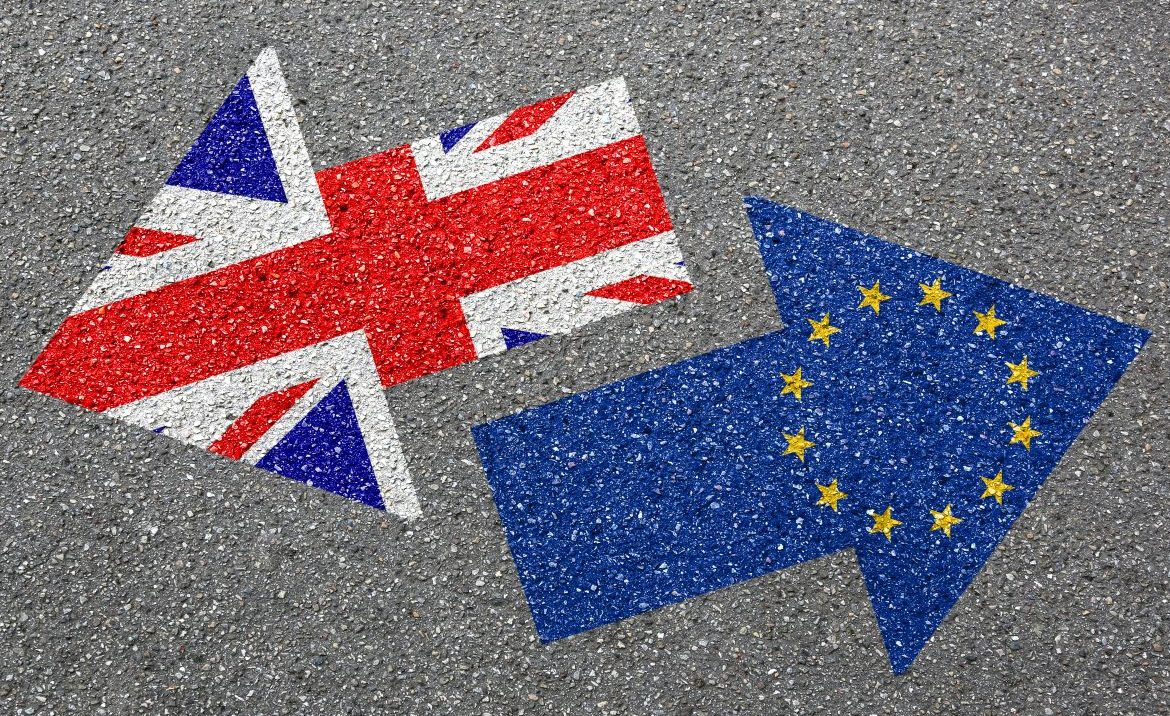On January 31, 2020, the United Kingdom left the European Union. As a result, this country was recognized by the European Union as a “third country”. One consequence is that the UK is no longer involved in the EU’s decision-making process. The parties agreed that the transition period would last until December 31, 2020. This was supposed to be a time when everyone would prepare for zero hour. At that time, politicians had to establish the rules of cooperation, including trade, that is, to develop an agreement, and companies had to adopt these mechanisms. As long as there is no deal in sight, the effects of Brexit will happen regardless of whether or not it will be there. So what should you pay attention to, and above all, where to look for information? We write about it below.
Origin is important
From 1 January 2021, i.e. from the end of the transition period, the UK will no longer form part of the EU customs area. From that date on, everything changes for everyone. In other words, the British kroner preferential customs and tax system will cease to function. The problem, as already mentioned above, is that there is still no trade agreement between the European Union and the United Kingdom regulating this issue.
Also read: Insurance for exporters extended during the pandemic
So what is the scenario? Prepare for the worst, that is, the absence of a contract, but at the same time learn about the possible mechanisms that will work even when concluding such a contract. Polish entrepreneurs who have not yet done so will have to register in the database of registered REX exporters or obtain certified issuer status.
Authorized source
REX . system
Rex System Manual
https://www.podatki.gov.pl/media/5117/rex-informacje-dla-przedsi%C4%99biorc%C3%B3w.pdf
Consequences of preferential origin of goods
How do the supplier declaration provisions apply?
Detailed explanation of the preferential origin (mainly pages 9-14)
https://ec.europa.eu/info/sites/info/files/file_import/guidance-customs-procedures_pl_1.pdf
Brexit – How to export to Great Britain after Brexit?
While everyone is aware that on January 1, 2021 there will be a real border with all the consequences at the UK border, there seems to be a lack of awareness of the reality to come. There is one exception. There will be no customs border in the movement of goods between Northern Ireland and EU member states, including Ireland. Therefore, the UK government has prepared a detailed guide for exporters outside the UK to facilitate trade. The UK authorities recommend the following:
-
Agree in advance with your UK trading partners the responsibilities and discuss the documents required for traded goods;
-
Ensure that our company meets the requirements for cross-border transportation of goods;
-
Familiarity with customs procedures and documents in addition to customs duties;
-
Determining the requirements for the export of agro-food products (agricultural products, food and beverages);
-
Determine if permits, certificates or other documents are required for exported products.
Exporting to Great Britain – Evidence from the British Government
either directly
Export to Great Britain – the offer
Britain’s exit from the European Union and the export of agricultural food products
The above guidelines apply to both exporting companies and companies intending to export. Each Polish company will have to comply with the new sanitary and phytosanitary requirements. not everything. The UK government has made it clear that if a particular type of product requires health certificates for export, new health certificates will be required. At the same time, he understands that not all companies will meet this requirement on January 1st. Therefore, the UK government allows a period to complete the documentation. On the other hand, it calls for defining the type of documentation that will be needed now.
Export of agricultural and food products
https://www.gov.pl/web/rolnictwo/brexit3
Animal and animal products exports
https://www.wetgiw.gov.pl/handel-eksport-import/brexit—wazne-informacje
Import of animals and animal products
https://www.gov.uk/guidance/exporting-animals-and-animal-products-to-the-eu-from-1-january-2021
Export of plants and plant products
https://www.gov.uk/guidance/importing-and-exporting-plants-and-plant-products-from-1-january-2021
Protecting Brexit and Trademarks
The UK Withdrawal Agreement provides that an authorized company that has registered its trademark in accordance with the provisions of Regulation (EU) 2017/1001 of the European Parliament and of the Council of 14 June 2017 on the European Union will have the legal protection of the trademark of the Union before the end of the transition period. In practice, this means equal legal treatment. Companies that have not registered the mark under Regulation 2017/1001 are required to apply to the UK Authority if they want to legally protect their intangible assets in the UK.
Trademark Protection
Copyright and unregistered designs
https://www.gov.uk/guidance/changes-to-copyright-law-after-the-transition-period
https://www.gov.uk/guidance/changes-to-unregistered-designs-after-the-transition-period
Britain’s exit from the European Union and business
The Brexit Act allows various types of entry into Great Britain. Everything will depend on the goal. Immigrants will be treated differently from people who run or intend to do business in the UK. For visits up to 6 months, the EU, EEA and Swiss will be able to enter the UK without applying for a visa. As part of this benefit, people from these countries and regions will be able to conduct business activities consisting in business meetings, participation in conferences, etc.
Entry rules up to 6 months
https://www.gov.uk/guidance/immigration-rules/immigration-rules-appendix-v-visitor-rules
Entry rules for more than 6 months
https://www.gov.uk/guidance/new-immigration-system-what-you-need-to-know
Work in Great Britain and Frontier Worker
https://www.gov.uk/guidance/frontier-workers-in-the-uk-rights-and-status
A compendium of information on doing business in Great Britain as of 1 January 2021 can be found at the following links:

“Proud creator. Amateur music junkie. Tv scholar. Web fan. Lifelong alcohol lover. Falls down a lot. Hardcore thinker.”







